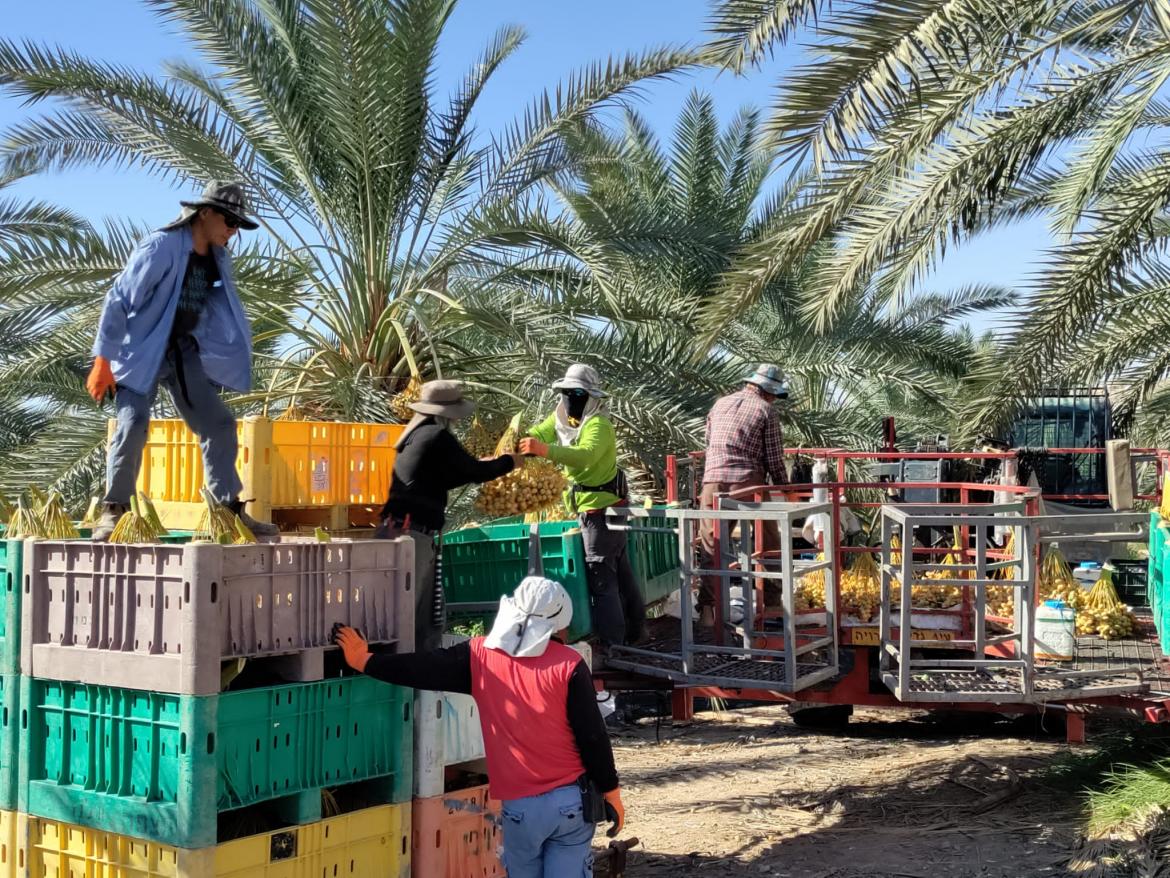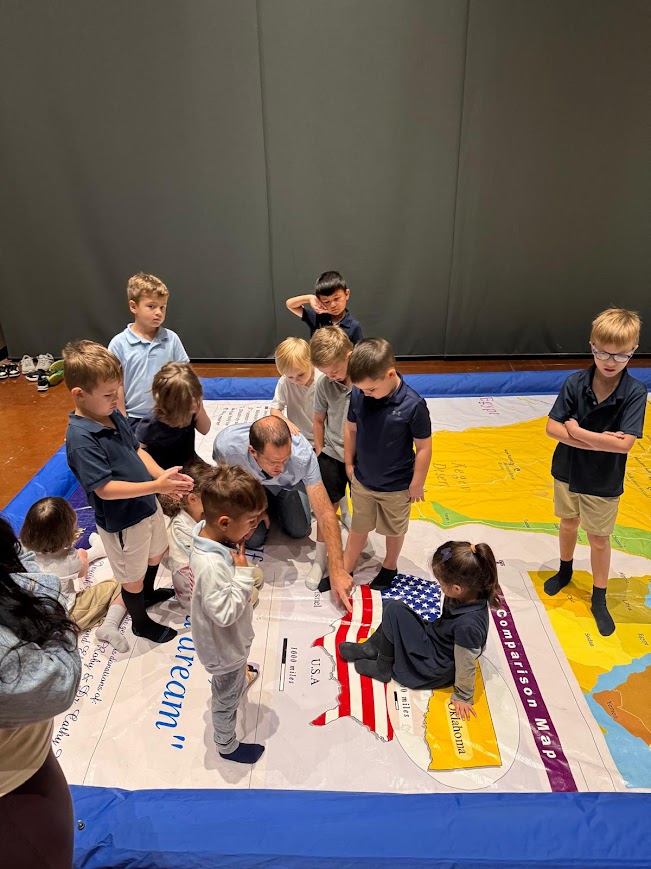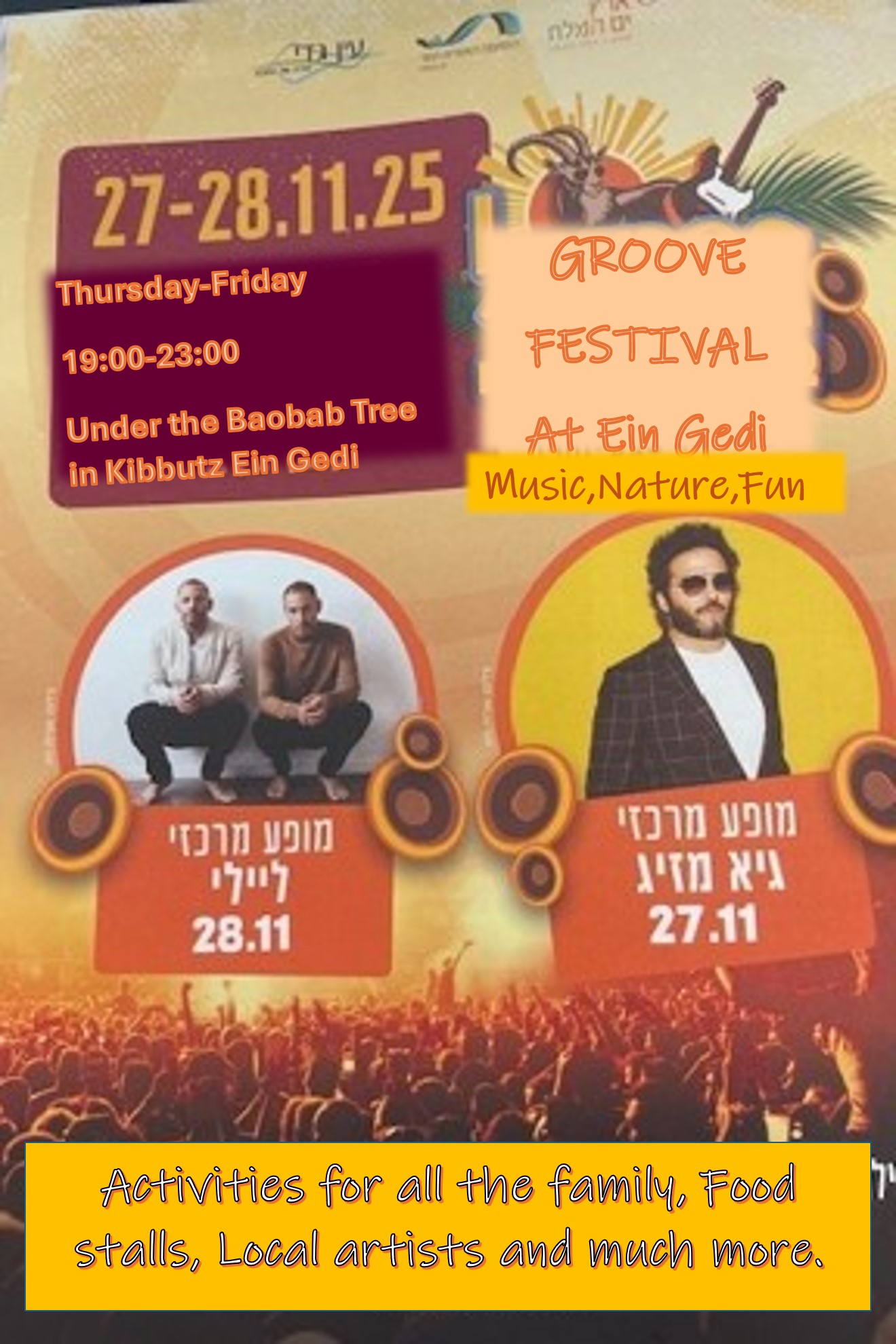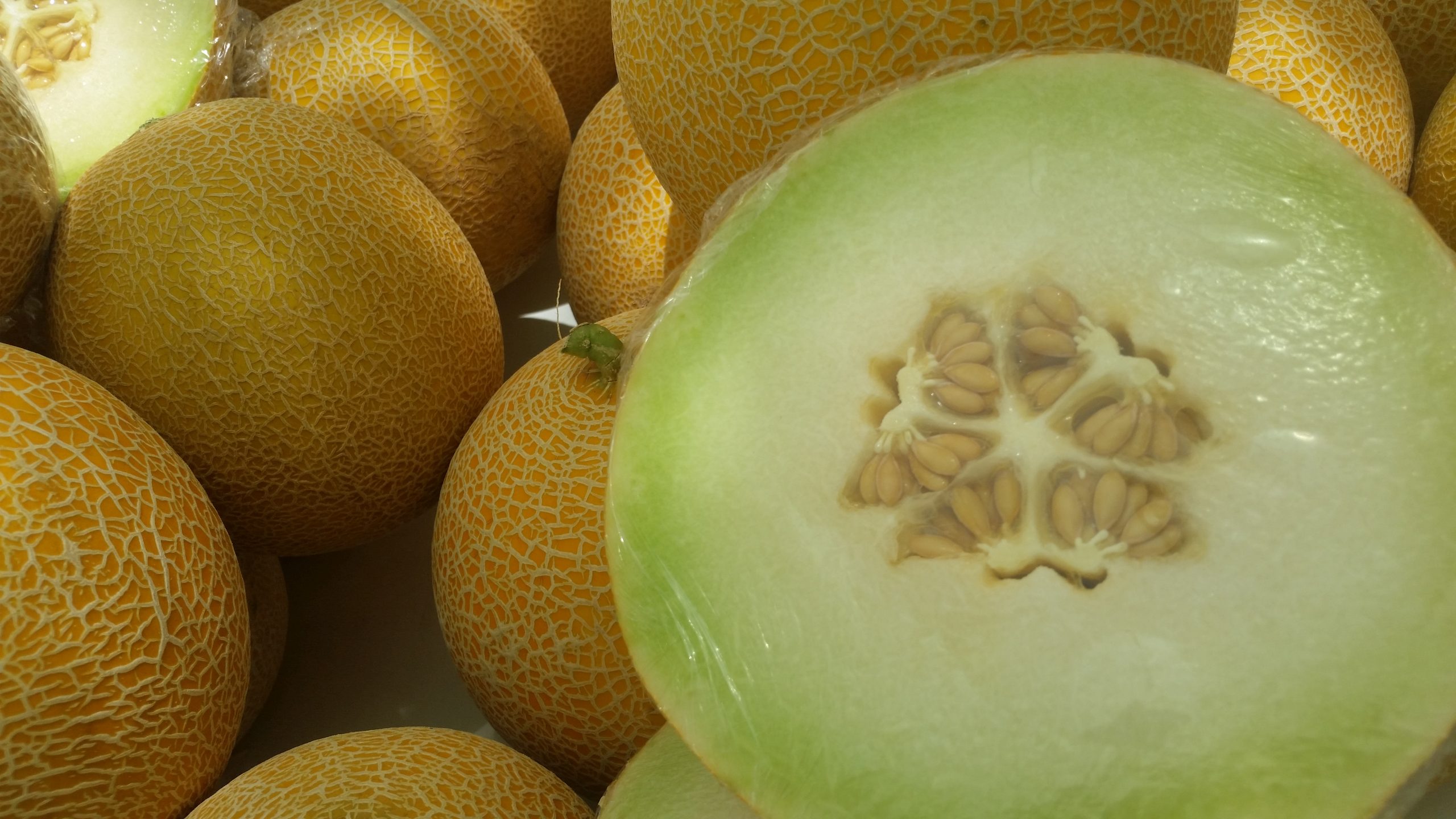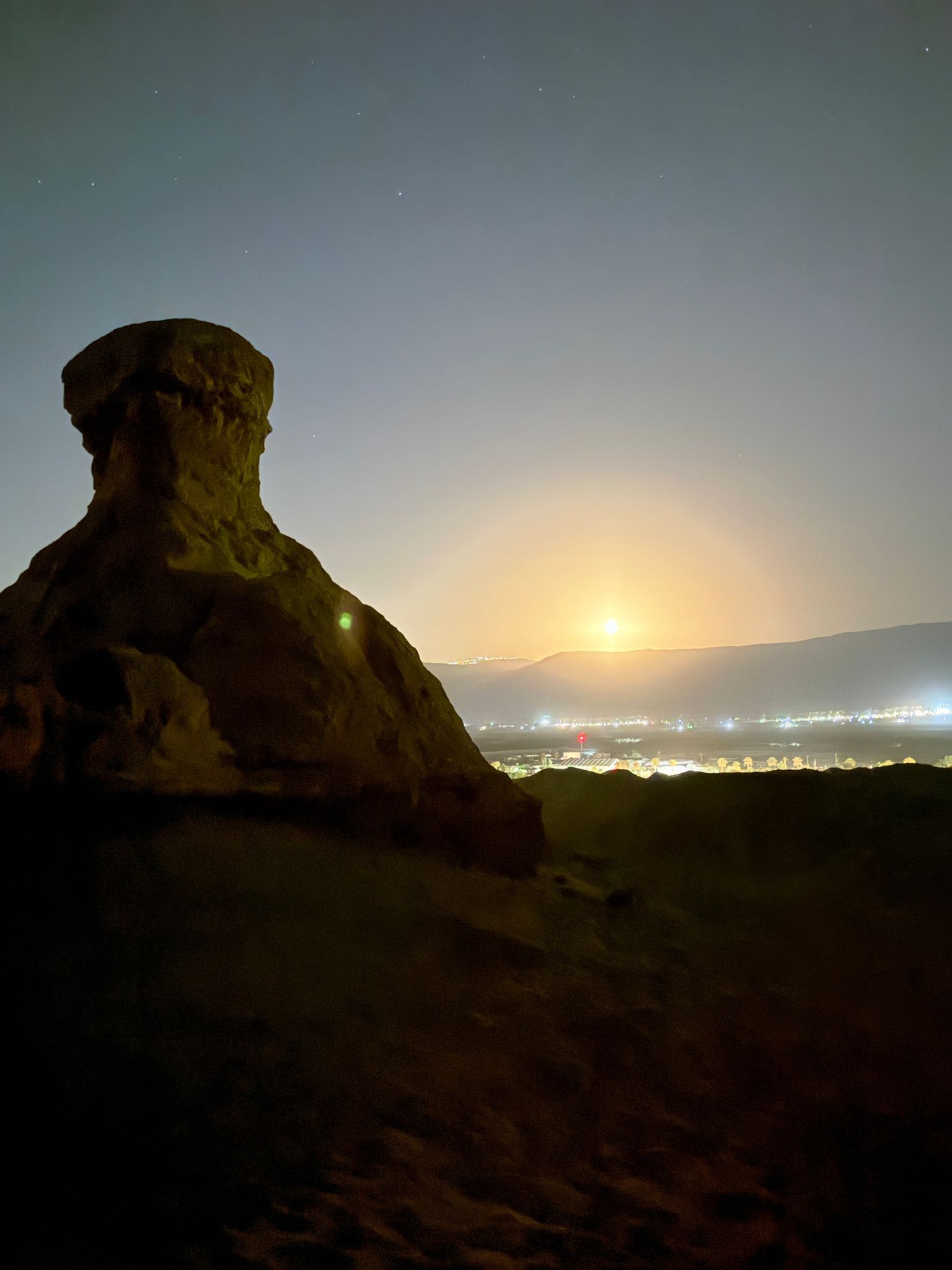FIRST HARVEST OF DATES EIN GEDI AND NEOT HAKIKAR
The First Annual Harvest of Dates at the Dead Sea: A Remarkable Endeavor.
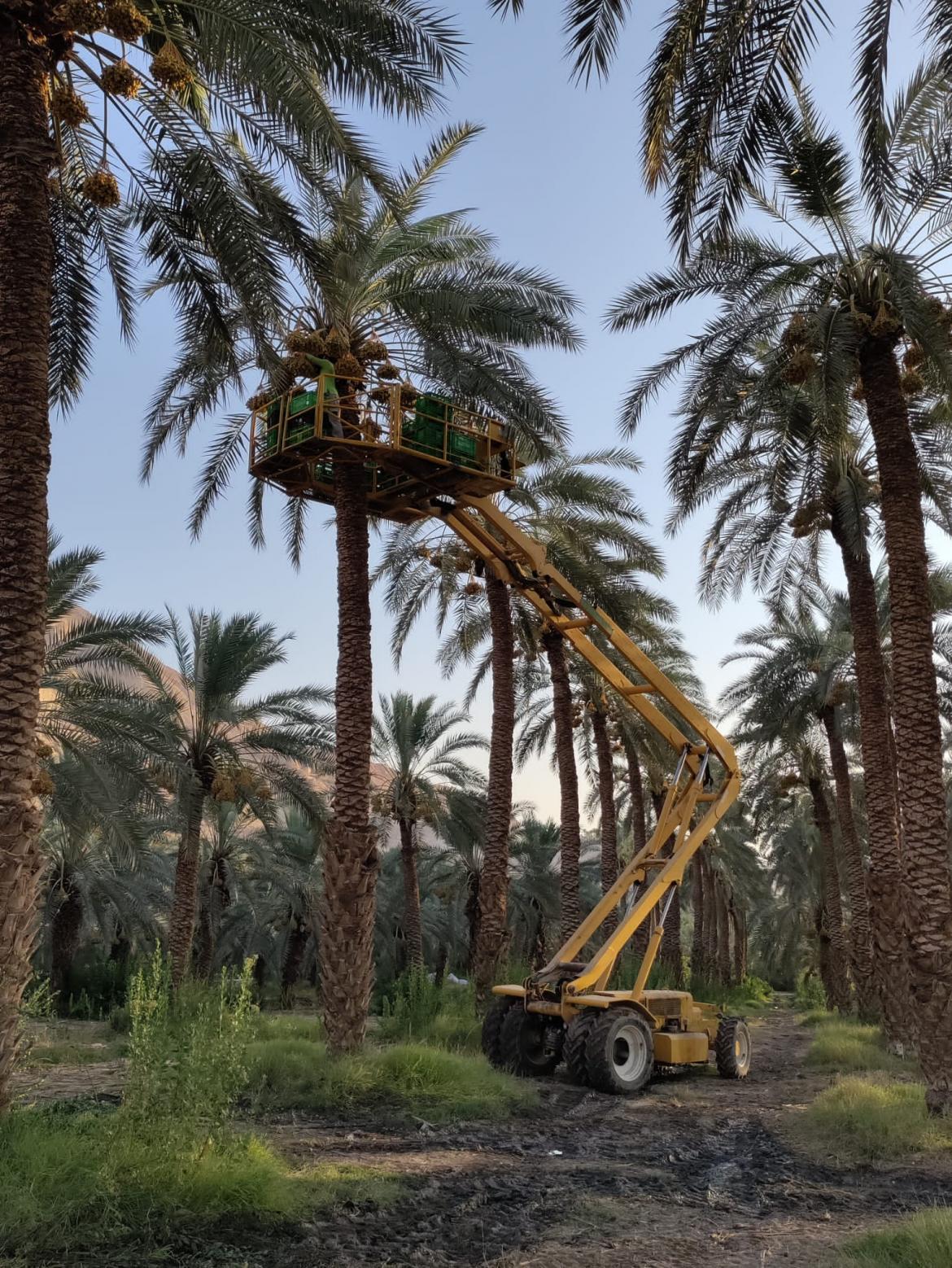
The Dead Sea, known for its surreal landscape and extreme salinity, is an unlikely place for agriculture. However, against all odds, an innovative project has emerged, showcasing the resilience and adaptability of human endeavor. The first annual harvest of dates at the Dead Sea represents not only a successful agricultural venture but also a symbol of hope and ingenuity. The communities on the Dead Sea shores: Moshavs Ein Tamar and Neot HaKikar and Kibbutz Ein Gedi all rely heavily on the income of exporting this superfood around the world.

The Dead Sea, located at the lowest point on Earth and bordered by Jordan to the east and Israel and Palestine to the west, is renowned for its otherworldly appearance and high salinity. This unique environment poses numerous challenges to conventional agriculture. Yet, in recent years, a pioneering initiative has brought life to this barren landscape.
The idea of cultivating dates at the Dead Sea was born out of a desire to utilize the region’s unique conditions for agriculture. The project began as a collaboration between local farmers, international experts, and government support. Its goal was not only to grow dates but also to foster economic development and promote sustainable farming practices in the area.

Cultivating dates in the Dead Sea region was no easy feat. The challenges include high salinity levels in the soil, extreme temperatures, and water scarcity. To address these obstacles, the project employed a range of innovative solutions:
- Soil Improvement: Specialized soil treatments and amendments were used to reduce soil salinity and improve its fertility.
- Irrigation Innovation: Drip irrigation systems with desalinated water were implemented to optimize water usage and minimize the impact of high salt levels.
- Date Varieties: Carefully selected date palm varieties that could thrive in the harsh conditions were planted.
After years of planning and hard work, the first annual harvest of dates at the Dead Sea took place. The event marked a significant milestone in the project’s success. It not only showcased the resilience of the date palms but also the determination of the local community and the dedication of all those involved. Sixty-seven years on the communities have expanded, cultivated, learned and enjoyed many harvests of the Medjool date which is classed as a superfood due to its richness in vitamin B, vitamin K, iron, calcium, magnesium, and zinc. Dates are also high in antioxidants which reduce the risk of many ailments like heart diseases, prostrate cancer, Type 2 Diabetes and eye lens degeneration.

Beyond the agricultural aspect, this venture has had a positive economic impact on the region. It has created job opportunities, boosted tourism, and provided a source of income for local communities. Moreover, it has the potential to serve as a model for other arid regions facing similar challenges especially those in the Dead Sea region on all sides of the borders.
One of the project’s core principles is environmental sustainability. By implementing innovative farming techniques and using desalinated water, it minimizes the impact on the fragile ecosystem of the Dead Sea while demonstrating the possibilities of sustainable agriculture in challenging environments.
The first annual harvest of dates at the Dead Sea is not just a story of agriculture; it’s a testament to human resilience, innovation, and the capacity to adapt to even the harshest conditions. It serves as an inspiring example of what can be achieved when determination, science, and community collaboration come together. As this project continues to grow, it offers hope for a brighter and more sustainable future in the Dead Sea region and beyond.
